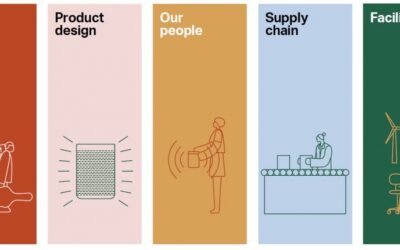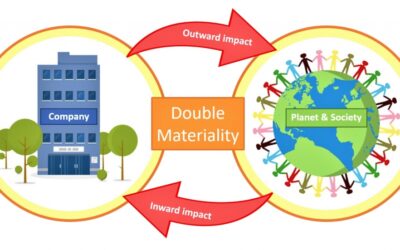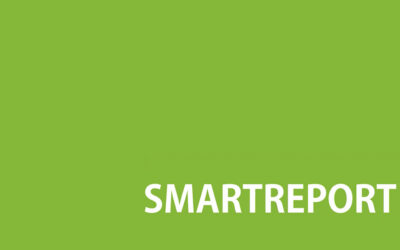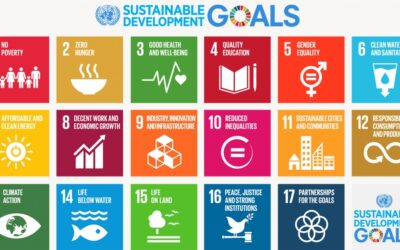5 common issues with carbon removal credits and how to avoid them Carbon removal credits can be a useful tool for companies to meet their net-zero targets. They also help scale solutions needed to address wider climate and nature challenges. And large-scale removal of...
We’re passionate and curious about all things sustainability, and we enjoy contributing to broader conversations in our industry.
Our Blog - Fresh thinking
Here, we share our thinking on sectors, sustainability topics, and trends.
We love collaborating. If you’d like to discuss partnering with us on a publication, please contact us.
Major economies adopt the ISSB’s sustainability standards. What do companies need to know?
The sustainability universe is watching as the EU’s new mandatory sustainability reporting standards go through the wringer. Meanwhile, the International Sustainability Standards Board (ISSB) Standards are gaining momentum. The ISSB, born at the 2021 UN climate...
CSRD Confusion: What Should U.S. CSOs Do Now?
How the EU’s last-minute delay to its sustainability directive affects U.S. companies What’s going on with CSRD? In early 2025, the EU Parliament hit the brakes on the Corporate Sustainability Reporting Directive (CSRD). After years of build-up, they’ve hit pause....
Future-proofing Your Sustainability Strategy for 2025
The Headwinds Facing Corporate Sustainability For more than three decades, sustainability enjoyed a steady rise. From the 1990s onwards, the direction of travel was clear: forward and upward. Influential companies embraced sustainability, creating dedicated...
Sustainability reporting: All hands on deck
How to engage employees in sustainability reporting when it seems like a distraction from the day job.
Year in Context 2024
As we enter a new year, we’ve been reflecting on the key sustainability themes from 2024 months and what it means for sustainability professionals plus some priorities to think about for 2025.
CSDDD vs CSRD: Key similarities and differences
The Corporate Sustainability Due Diligence Directive (CSDDD) and the Corporate Sustainability Reporting Directive (CSRD) are new EU sustainability legislations with a lot in common — not just in name. Here’s a breakdown of key similarities and differences to help you...
Adopting IFRS S1 and S2 on a voluntary basis: where to start?
Companies currently reporting toward Sustainability Accounting Standard Board (SASB) or Taskforce for Climate-related Financial Disclosures (TCFD) will need to transition to the new International Financial Reporting Standards (IFRS) Sustainability Disclosure Standards...
7 tips to avoid SDG-washing
Businesses have long recognised that they can and should make a meaningful contribution to the UN Sustainable Development Goals (SDGs). And there’s a big prize on offer for solving major economic, environmental and social challenges and delivering on the goals — an...
Sustainability Reporting The Smart Way
Sustainability Reporting the Smart Way: A Practical Guide for Modern Organisations Sustainability reporting has moved from a useful exercise to an essential requirement for most organisations. Customers, regulators, investors, and communities want clear information...
CSDDD: What you need to know
The Corporate Sustainability Due Diligence Directive (CSDDD) is the new kid on the block for many large companies active in the EU: here are the key things you need to know now. What is CSDDD? The CSDDD (CS3D) is a new EU human rights and environment due diligence...
The sustainability language barrier no one is talking about
Language is a powerful — but often overlooked — tool in sustainability. It is how we shape ideas and understand the world around us. It helps us to connect with each other and with nature. By naming the things we value, we demonstrate what is important to us and to...
Effective operational grievance mechanisms: Why companies must have them
Many companies operate, or conduct business with partners, in challenging contexts1 that can pose significant human rights risks. This is especially true for large multinationals with complex supply chains, where the threat of modern slavery and human rights...
Are you ready for radical transparency? — 7 Key questions
Radical transparency has been heralded as the antidote to greenwashing. But how do you decide if your business is ready?
The Truth About COPs29s Controversial Host
The Truth About COPs29s Controversial Host There are plenty of climate issues to tackle at the upcoming COP29 this month, but the overwhelming spotlight has been on the controversial host country: Azerbaijan. This will be the second year running that the annual UN...
10 top tips for your nature positive journey
Global wildlife populations have plunged by nearly 70% since 1970. More than 44,000 species are currently threatened with extinction, with 41% of amphibians and 37% of sharks and rays on the brink of collapse. Overdeveloped land and overfishing, exploitation of...
Year in Context
Environmental and social issues have never been far from the headlines over the past 12 months. While they often take a back seat in times of economic or political uncertainty, these issues are returning to the top of the agenda ever more quickly after a crisis,...
Top tips to avoid greenwashing
Consumers want to hear how brands are transforming both their products and operations. In fact, 90% of consumers indicate it is important for brands to talk about their sustainability programmes. But the EU has found that over half of current communications are vague,...
Consumers want brands to talk about sustainability… clearly
Research shows consumers have little understanding of important sustainability terms and are looking to brands to help them get to grips with environmental issues. But consumer trust is quickly destroyed by the use of vague and imprecise words like ‘green’ and ‘eco...
7 steps to conduct an effective double materiality assessment
Double materiality sits at the core of the new European sustainability reporting standards. The Corporate Sustainability Reporting Directive (CSRD) affects more than 50,000 companies, requiring them to disclose the impacts, risks and opportunities associated with...
10 top tips for an effective climate strategy
10 top tips for an effective climate strategy As the urgency to combat climate change continues to grow, so does the importance of having a robust and credible climate strategy and net zero roadmap. Getting this right is key to the success of your organisation’s wider...
Greenwashing legislation: vital step or lacking impact?
With a rise in sustainability and ESG related language in marketing communications, regulators are cracking down. But will the new greenwashing legislation be effective? In 2021, for the first time, greenwashing was the focus of the European Commission's annual online...
Universal Reporting Standards – Pipe Dream or Panacea?
Universal Reporting Standards Pipe Dream or Panacea? In recent years, stakeholder demand for environmental, social and governance (ESG) information has increased exponentially. Investors need clear, comprehensive, and comparable information to make informed...
What’s the fuss about double materiality?
I used to think the concept of materiality in sustainability-speak was rather hard to understand until I came across the concept of “double materiality” in the EU proposal for improvements to company reporting. Is double-materiality significant or merely a...
Towards integrated reporting
You’re thinking of including more sustainability information in your annual report. Given that universal standards for fully integrated reporting are some way off, what do you do? It’s a good time to make a start, for three reasons: Integrated reporting will be the...
Inching towards one set of ESG reporting standards
Summary of developments in setting ESG reporting standards
Report Smart to keep connected and save money
Does C-19 give you a reason to skip a year in your sustainability reporting? It’s a fair question, given that most companies will be short of resources and looking to save a few pennies. We have a solution that saves money and time. More important, it helps you...
Sustainability reporting in the EU: What’s the law?
A look at requirements across Europe.
What’s your carbon: negative, neutral or positive?
Current corporate climate change terms described
Sustainability Failed the Future is just Climate
Sustainability Failed the Future is just Climate
Sustainability Reporting, the Smart Way
Today, Sonos published their Fiscal Year 2018 Sustainability Report. It has everything you would expect a tech company to cover, from product design to inclusion and diversity to supply chain responsibility. But what makes this report different? It’s only 25 pages....
Here are the companies that use social media best for sustainability marketing
Your sustainability program is firing on all cylinders. You’ve got goals, you’re making progress, and you’re adding value to your business. After publishing your sustainability report, you think you’ll finally get credit for your efforts. But will you? According to...
#Susty Social Media Ranking
There are 2.5 billion social media users globally.[1] As a result, companies made social platforms key to their marketing strategy — but who is taking advantage of the mass audience reach for sustainability? That’s the question we set out to answer in our Susty Social...
Corporate Action on Sustainable Development Goals
No doubt, you’ve heard of the UN Sustainable Development Goals (SDGs), the 17 ambitious targets to end poverty, protect the planet, and usher society into a peaceful and prosperous future. The goals, such as SDG2 “Zero Hunger” and SDG4 “Quality Education” remind us...
Twitter: Audience Expansion for Sustainability Communications
Your sustainability program is firing on all cylinders. You’ve got goals, you’re making progress, and you’re providing value to your business. After publishing your annual sustainability report you think – we’ve done it, people will finally know what we’ve been up to!...
Let’s get digital: Expanding your sustainability reporting audience
The first sustainability report we wrote was for Unilever in 1997. Over the last 20 years, the content, audience, and mode of reporting has evolved. It’s no longer about lengthy, printed disclosures geared toward regulatory agencies — it’s about short storytelling to...
Never a dull moment – Three ways to maximize the impact of your sustainability report
How sustainable are you? This is what everyone wants to know from your sustainability report. Customers, co-workers, shareholders and NGOs seek to understand how your company helps tackle global challenges such as the targets under the Sustainable Development Goals....
Three trends that will shape corporate sustainability in the future
Phots: Flickr - mattwalker69 If one thing is constant in our modern world, it is that we are constantly changing. The same can be said for the field of corporate sustainability. It feels like every day there is a new framework, a new ranking, a new concept that...
Sustainable Development Goals: The New Corporate Holy Grail?
End poverty and hunger. Educate every child. Promote decent work for all. Utopian? Yes. Impossible? No. At least not according to some of the world's leading companies and best-known brands. Somewhat surprisingly, given the lofty ambitions involved, they are embracing...
Telling the story of climate change
Photo: Noemí Jiménez Telling Story Climate Change Our Associate Ashley delves into the age old question: what makes sustainability communication effective and engaging? At Context, we know that progress on sustainability doesn’t happen by accident – it requires...
To assure or not to assure, that’s the CR question.
10 things you need to know about third-party assurance and deciding whether or not your company should get its corporate responsibility report assured. It’s that time of year again. While we’re still feeling the summer heat, vacations are winding down and corporate...
Demystifying the Future of Materiality and Reporting
Demystifying the Future of Materiality and Reporting Context Conversation: April 25, 2015 Speakers: Curtis Ravenel, Global Head, Sustainable Business & Finance, Bloomberg L.P. Hilary Irby, Managing Director Global Sustainable Finance, Morgan Stanley Last Tuesday...
In Context Spring 2015
In Context Spring 2015
































